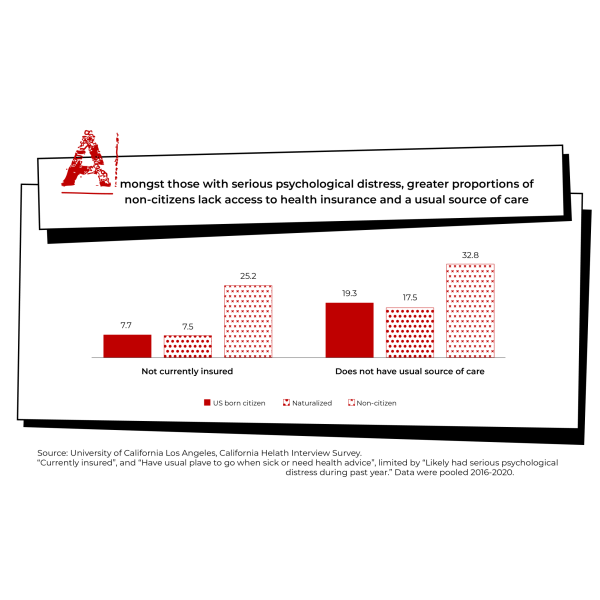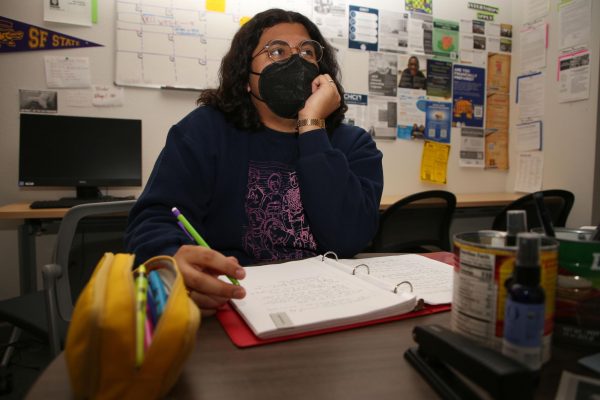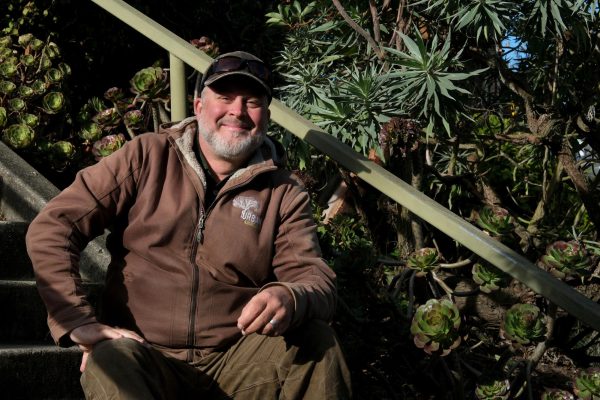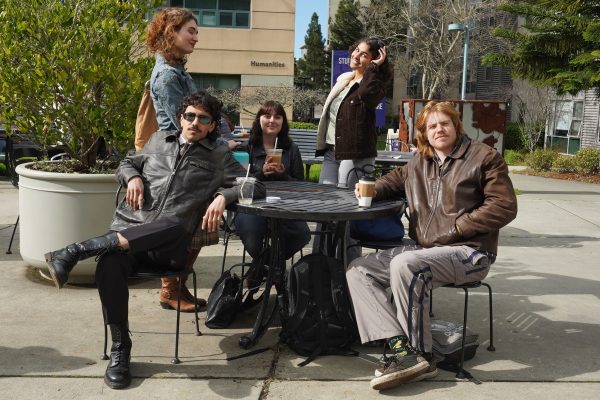Mindfulness and meditation: nature’s impact on mental health
Humanity thrives in nature and without it, people’s health and well-being can quickly suffer. Experts believe nature is one of the most powerful healing forces on earth. With stay-at-home orders enforced the last 12 months, people have struggled with keeping their mental health afloat.
Maiya Evans, a holistic health lecturer in the SFSU public health department, speaks on the negative effects of being indoors.
“Mental health is at the forefront of the consequences of being in this social situation,” Evans says, referring to the pandemic.
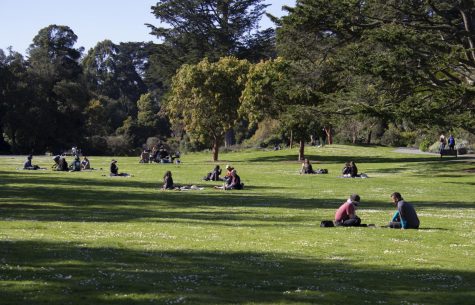
According to Evans, suicide rates, drug use, and various mental health issues have increased greatly since the start of the pandemic. The CDC states that over 40% of adults in the U.S. reported struggling with mental health and substance use, approximately 3-4 times more than the previous year.
Evans has seen an increase in levels of depression, anxiety and suicidal ideation among the student population and attributes this, in part, to the mental and physical strain of having to stay indoors.
“This feeling of joylessness, a feeling of isolation, can lead to the more serious problems of anxiety and depression,” says Evans.
To combat this, Evans recommends taking time outdoors so nature can boost the immune system all while benefiting our mental health and decreasing stress. Essentially, being outdoors allows a release of serotonin, a neurotransmitter that regulates mood and can increase our overall well-being.
Associate professor Vivian Chavez, a faculty member of the public health department, teaches students about the long-term physical health benefits of nature. She explains that walking around or looking at trees lowers blood pressure and reduces the cortisol and adrenaline hormones associated with stress.
Chavez cites Ecotherapy, a formal treatment intended to advance healing through nature, as a potential way to improve mild to moderate depression.
“Nature can serve us as one of the most potent healing forces,” she says.
According to psychologist Ming Kuo on an NPR podcast, nature “helps us be our better selves.” Kuo states that when people have greater access to nature, “you see better social functioning. You see better psychological functioning and better physical health.”
One aspect of this is attention restoration theory states that people who don’t have access to nature are more mentally fatigued. This mental fatigue ultimately affects their ability to handle social situations.
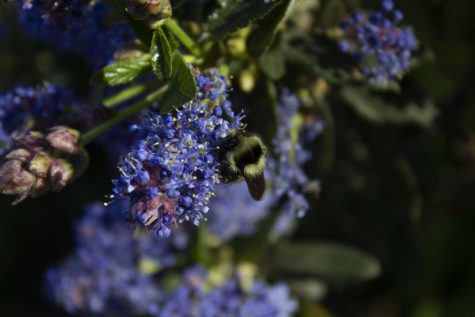
In terms of outdoor activities, Evans says “the sky’s the limit.” She suggests walking, hiking, biking and visiting local parks and beaches to absorb the vitamins and nutrients nature has to offer.
Tom Kirk, a San Francisco resident, visits Duboce Park with his dog twice a day.
Kirk got a dog during the pandemic, and says that having a dog has prompted him to get outside more which in turn, has helped him a lot. The fresh air, green grass, and friendly neighbors have improved his outlook immensely.
On the mental health benefits of nature, Kirk states, “I believe in it 100%.” He describes how his close friend is currently dealing with a drinking problem. Rather than sit inside watching TV, Kirk encourages his friend to step outside. “Go for a walk,” he says, “Get outside. Just take a nice quiet walk, it doesn’t have to be far, but just get out in nature.”
In addition to stepping outside, Evans recommends looking into mindfulness and meditation to overcome the negative impact of being stuck indoors. She claims these practices can help decrease feelings of isolation, depression, anxiety and stress.
Evans explains that even a quick moment of mindfulness can be beneficial, whether it be five minutes or half an hour.
She encourages people to ask themselves, “how do you take space for yourself?”
One form of meditation Evans recommends is the “body scan” meditation, which allows one to focus on each part of their body. She also suggests box breathing, which is to take four breaths in, hold for four seconds, then release for four counts. For beginners, Evans recommends YouTube videos or free meditation apps such as Calm, Headspace and Insight Timer.
“All of us have been put in situations we didn’t necessarily ask for,” she says. “Give yourself credit for the things that you have done. If you can take it day by day, it can ultimately have big results.”

Kenzie Aellig (she/her) is the editor in chief of Xpress Magazine. Through her work, she hopes to highlight stories of community and culture, including...

Maddison October is a 22-year-old photojournalism major with a minor in anthropology, she was born and raised and still currently resides in the Greater...


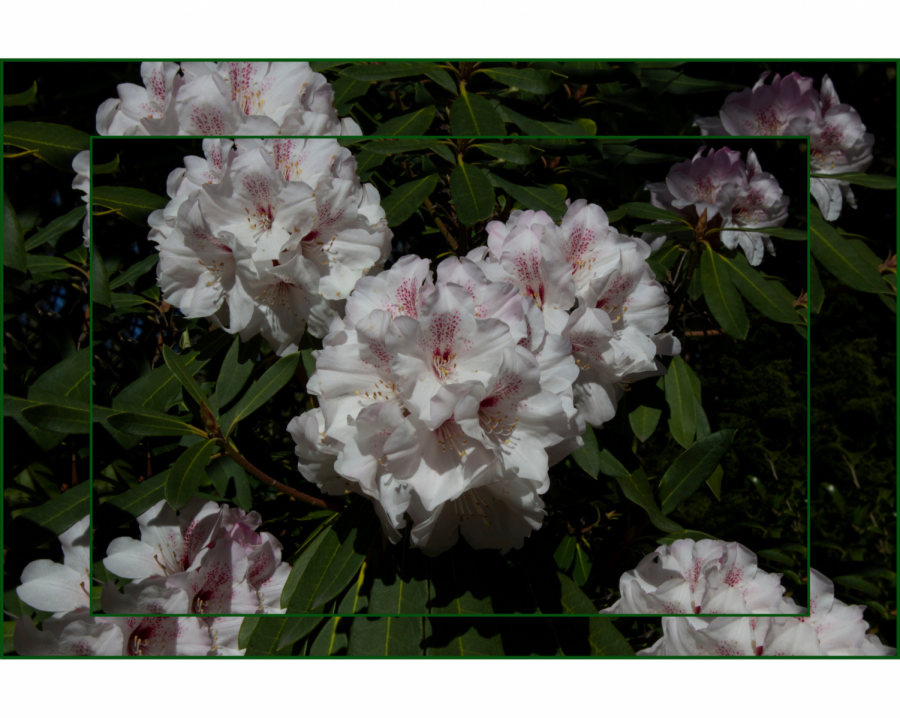

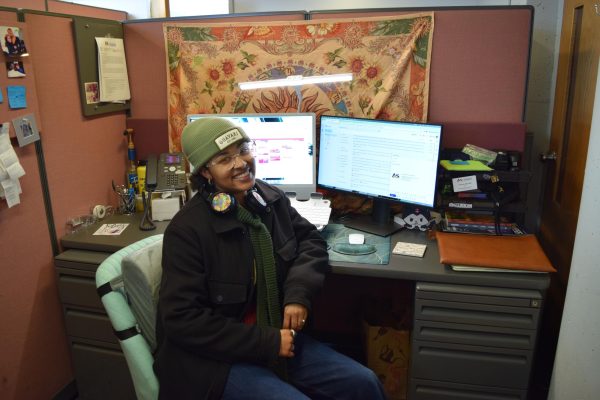
![[From left to right] Joseph Escobedo, Mariana Del Toro, Oliver Elias Tinoco and Rogelio Cruz, Latinx Queer Club officers, introduce themselves to members in the meeting room on the second floor of the Cesar Chavez Student Center.](https://xpressmagazine.org/wp-content/uploads/2024/03/mag_theirown_DH_014-600x400.jpg)

